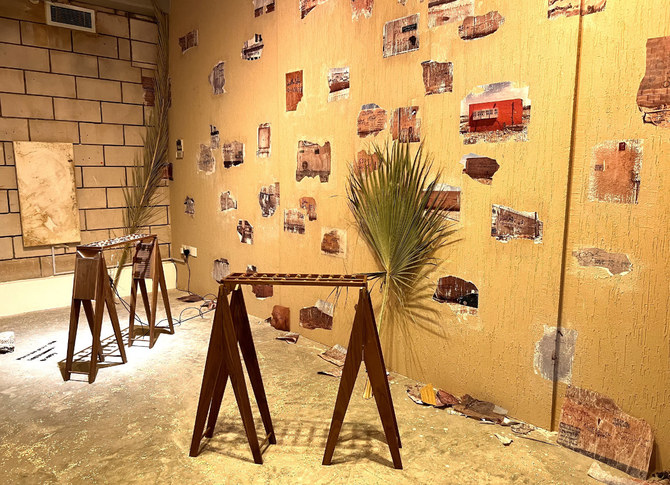RIYADH: The Misk Art Institute’s latest Masaha Residency art showcase features 11 global and local artists and two writers whose projects explore tradition in the context of social development.
The fifth cycle of the three-month cross-cultural program brought together an international cohort of artists to develop fresh, research-driven art projects. Through architecture, music, and culture, several artists discovered traces of their own homes in the Saudi landscape.
Fahdah Althonayan, director of the education department at Misk, told Arab News: “Each cycle has its own uniqueness. Within this one, we had the opportunity to experiment with dual artists … it is a new thing that we tried with (them) to work together on their artwork, which surprised us as well.
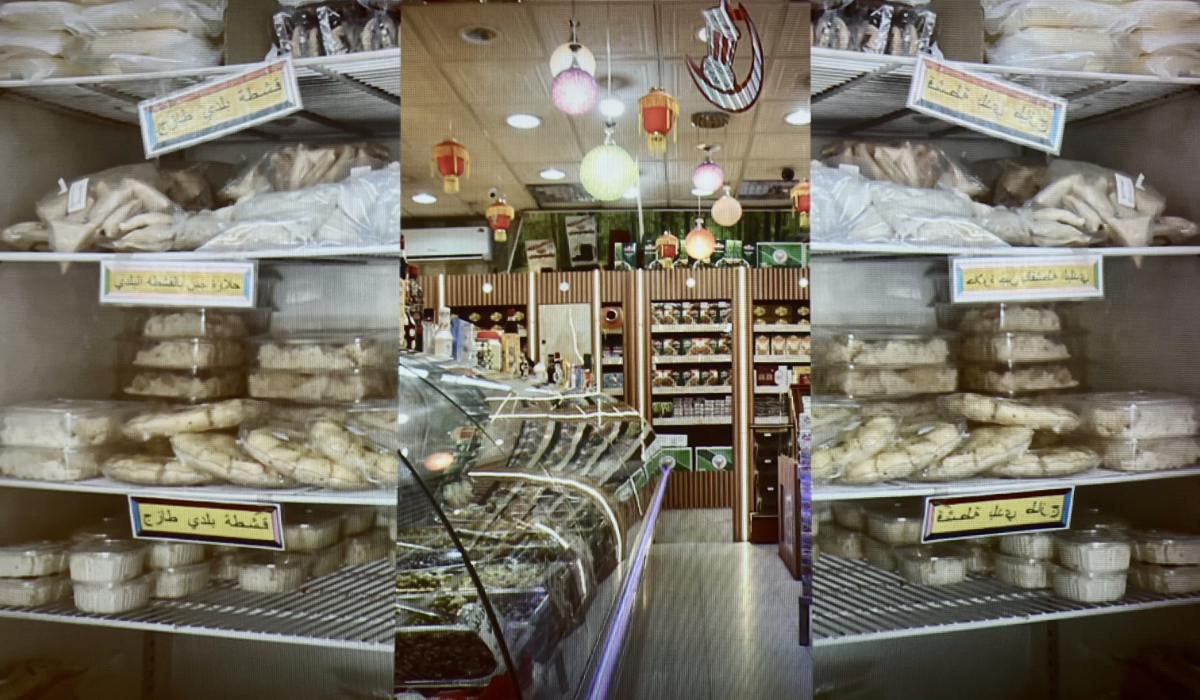
Palestinian artist Areej Khaoud, who currently lives and works in London, took to the marketplaces of Riyadh to find remanences of belonging in her piece ‘Still Hungry.’ (AN photo)
“The variety of Saudi, khaleeji, and foreigners from different continents was amazing. It is an enriching experience.”
Ilyas Hajji, a photographer, and Nastya Indrikova, a researcher, are a Russian duo who worked on reconstructing the Hajj pilgrimage route, which was often dangerous.
Although it was modernized, many still struggled to make the trip from Russia, including the Muslim population in Dagestan during and after the fall of the Soviet Union.
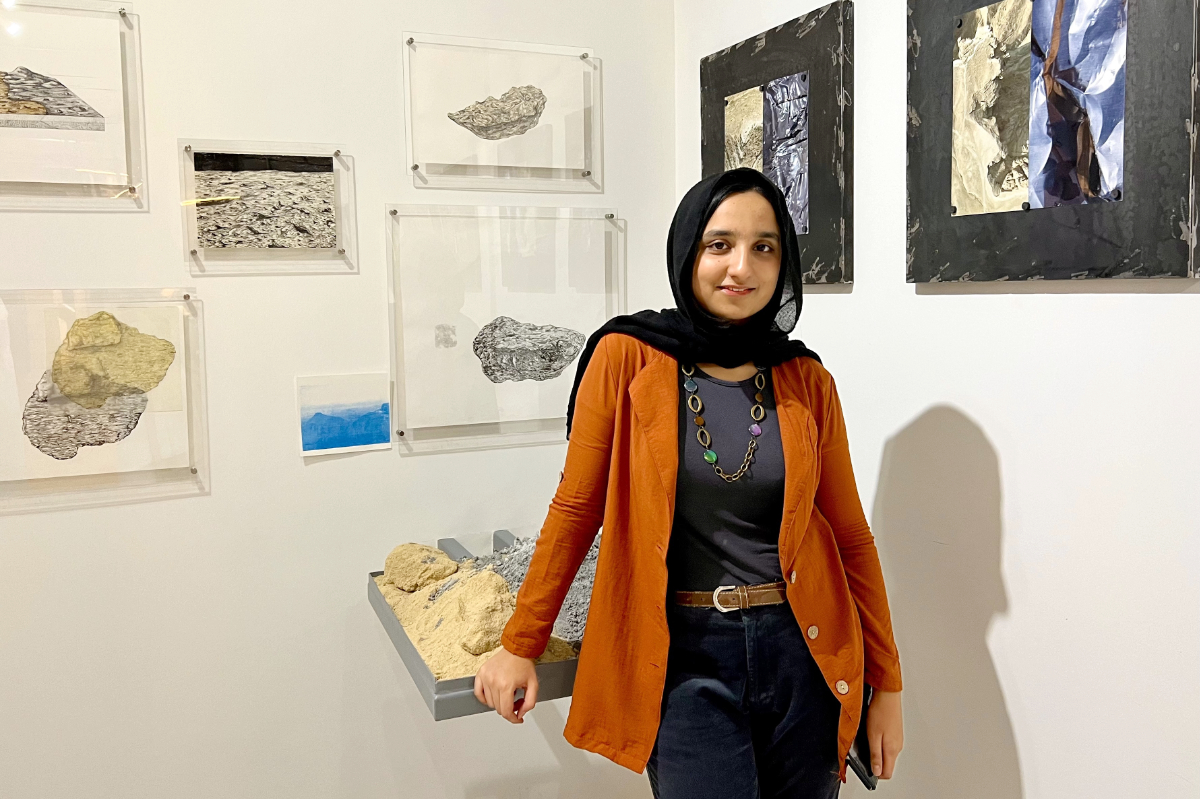
Aleena Khan's artwork, “A Calling from the Moon,” toys with a popular Myth in Pakistan that the call to prayer, Adhan, was heard upon Neil Armstrong’s arrival to the moon. (AN photo)
The pair used items brought back from Hajj to highlight the effect on millions who were free to travel after the union’s dissolution.
Palestinian artist Areej Kaoud, who lives and works in London, took to the marketplaces of Riyadh to find a sense of belonging in her piece “Still Hungry.”
“In all these spaces, they pick things. You think that the owner is just trying to sell you things but he’s also trying to heal his own uprootedness,” Kaoud told Arab News.
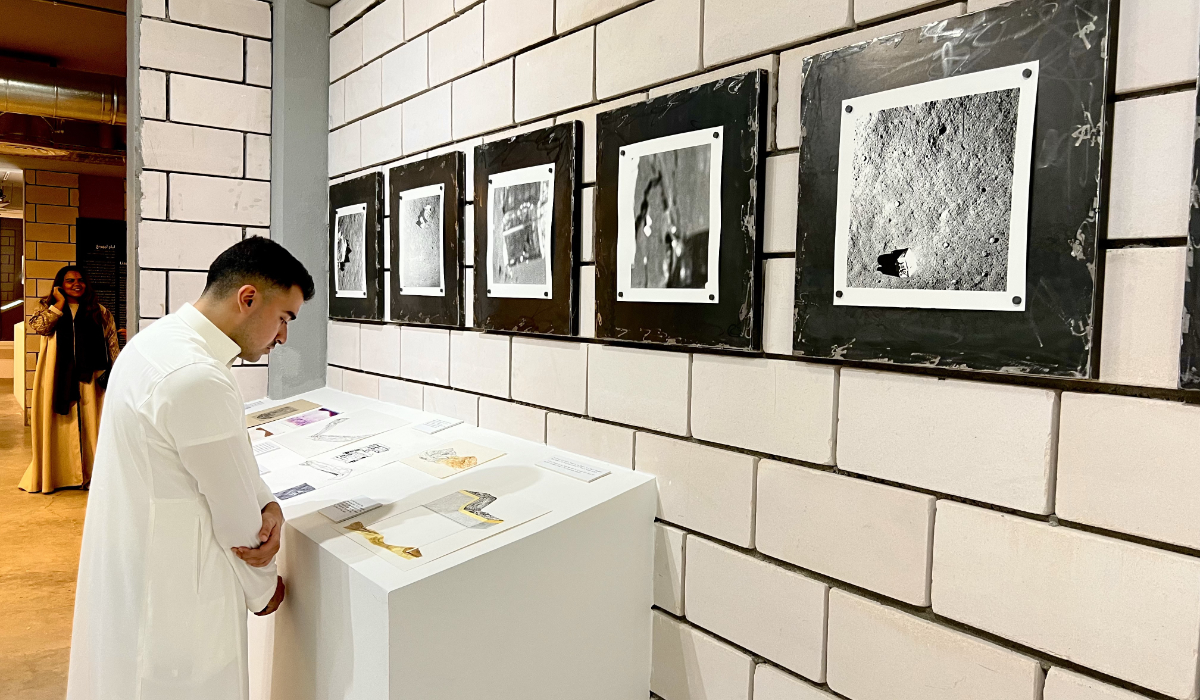
Drawing comparison between the moon landing and the Arabian desert landscape, Khan's parafiction multimedia work diffuses the idea of universality and explores a more subjective path to truth. (AN photo)
Kaoud’s studio is the backdrop for a video documenting the offerings of a market staffed by diaspora from other countries, who preserve and share the traditions of back home.
The studio wall is covered with phrases including “Can one heal uprootedness with food?,” “Is being home a state of ‘non-hunger’?” and “Insatiable in diaspora.”
Liao Lihong, a Chinese artist living in Paris, merged an abacus with the shapes of a qanun and an oud to create a unique musical instrument.
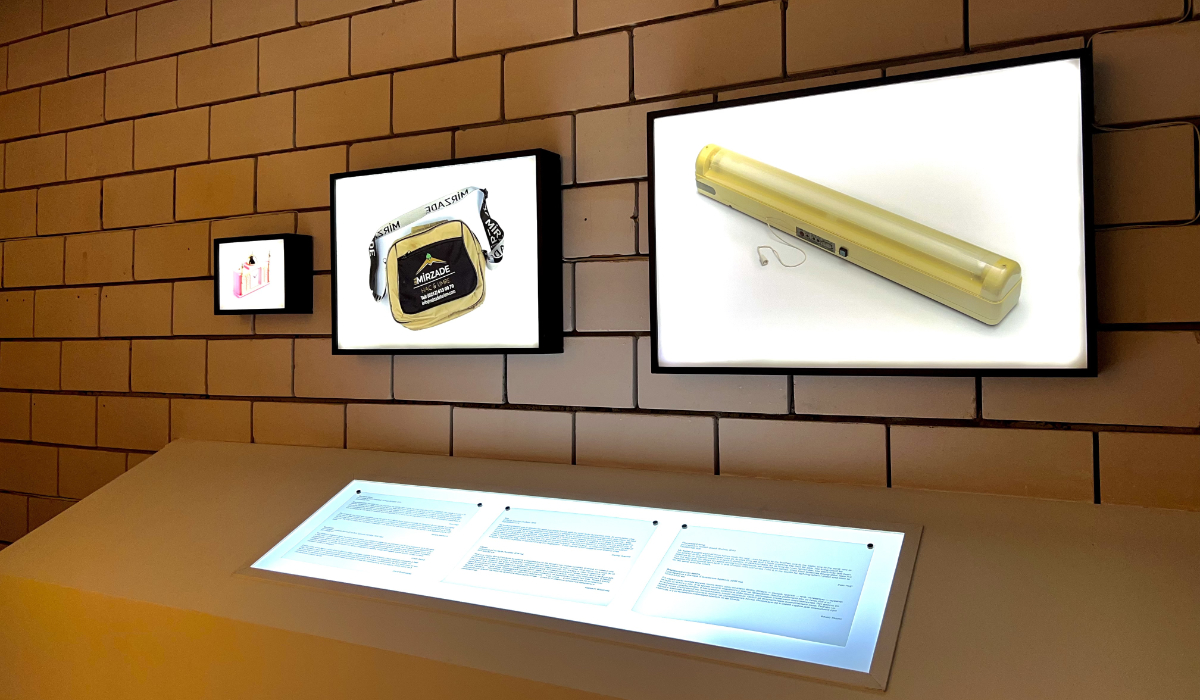
Centering the fall of the Soviet Union, the Russian artist duo Ilyas Hajji and researcher Nastya Indrikova, highlighted the presence of millions who were once again free to travel, made concrete through the items they brought back from their Hajj journey. (AN photo)
“When I studied in China in elementary school, we had a class using the abacus, but now we do not use it anymore because we have calculators,” she said. “But the sound (they make) was always in my mind. The idea is when people use the abacus to calculate numbers, it also plays music."
Aleena Khan bolsters Saudi Arabia’s historical first — a female astronaut and her colleague reaching the International Space Station last month.
Her artwork “A Calling from the Moon” toys with a popular myth in Pakistan that the Adhan, the call to prayer, was heard by Neil Armstrong on the moon.
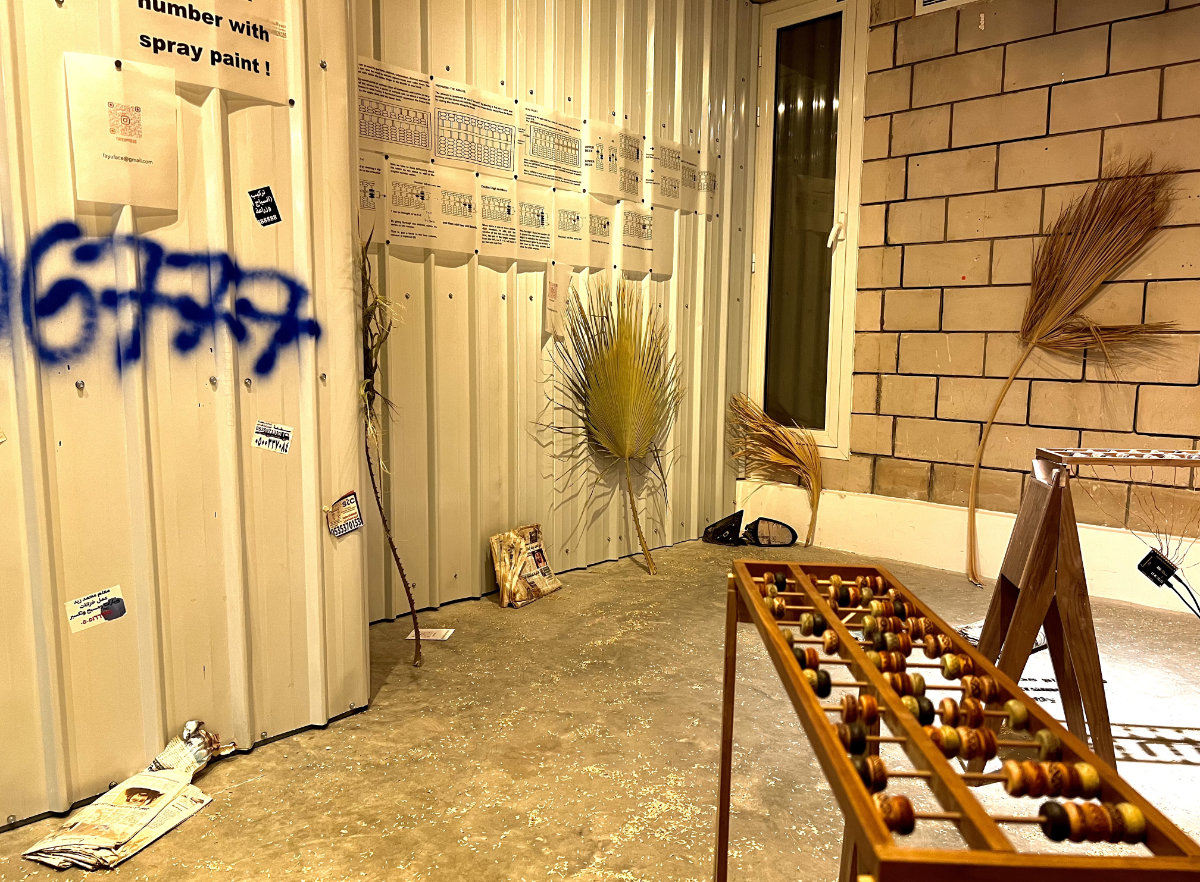
Taking collected receipts from her stay and graffiti-d numbers across the city as inspiration for “sheet music,” Lihong fabricated a way for the numbers to create sounds on the abacus using a computing method. (AN photo)
Her work draws comparisons between the moon’s landscape and an Arabian desert.
She said: “I started to draw what the material on the moon looks like and then I sourced anything that looks similar to it and took it to the desert and shot it.
“What if these landscapes were one?”
In the fragments of Riyadh’s demolished architecture, artist Dia Mrad found hope for their new beginning in his studio. The Lebanese photographer spent months researching and photographing changes in the city’s neighborhoods to create the work “Traditions of Change.”
In line with his practice, which looks to extract narratives from a built environment, he screen-printed fallen pieces of debris with photos of homes that are scheduled for demolition in Riyadh.
“The Kingdom goes through cycles of change — every 30 or 40 years, a big change happens. The latest change that’s happening is Vision 2030, and it’s such a massive change that it’s affecting everything and it’s manifesting largely within the built environment. The history of a city is embedded within its materiality,” Mrad explained.
The exhibition, which spans various mediums including installation, textile, silkscreen and Arabic writing among others, can be viewed at the Prince Faisal bin Fahd Arts Hall in Riyadh until June 10.



